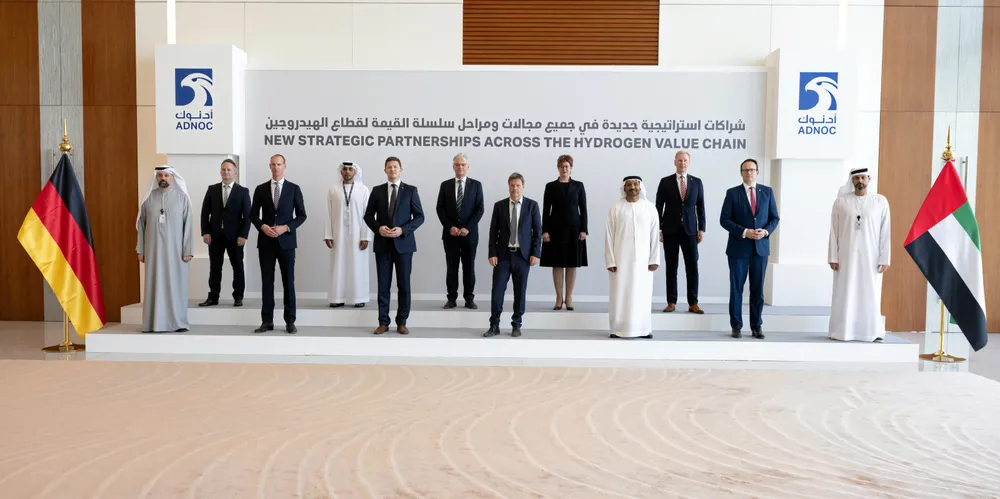Germany plans to import hydrogen from UAE using 'liquid organic carrier' technology
Uniper, start-up Hydrogenious, JERA Americas and ADNOC to start with demo project with the goal of building up an H2 supply chain to the German port of Wilhelmshaven

Uniper, start-up Hydrogenious, JERA Americas and ADNOC to start with demo project with the goal of building up an H2 supply chain to the German port of Wilhelmshaven
